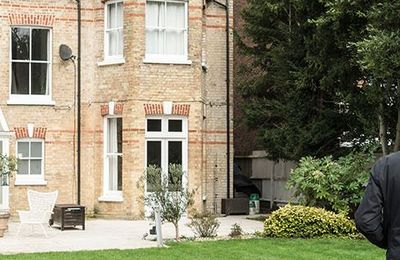The government is pushing ahead with plans to bring unused pension funds within the scope of inheritance tax (IHT) from April 2027.
It has now published more details about how the changes will work, confirming key elements and making some revisions to what was originally proposed by the Chancellor in the Autumn Budget.
Here are seven things to know about what’s changing, who will be affected and what it could mean for your pension.
1. Unused pensions will become part of your estate
Currently, defined contribution (DC) pensions – where you build up a pot of money to fund your retirement – are not included in your estate for IHT. This means beneficiaries don’t usually pay IHT, although income tax may still apply depending on your age at death.
From 6 April 2027, this will change. Any unused pension funds left behind will be considered part of your estate and may be taxed at 40% if your estate exceeds the IHT threshold.
The Treasury said: ‘This change has been introduced to prevent pension schemes from being increasingly used and marketed as a tax planning vehicle to transfer wealth, rather than for their intended purpose of funding retirement.’
Pension schemes will be expected to update their communications, webpages and member booklets ahead of the change.
While pension wealth will now be brought into scope, the usual IHT exemptions will still apply. A surviving spouse or civil partner never pays IHT on anything you leave them, regardless of the amount, as long as you’re both UK-domiciled. Unused allowances can pass to them too, meaning up to £1m could be passed on tax-free on second death.
2. Personal representatives will need to report pension details
Under the latest proposals, personal representatives (the people managing the estate) will be responsible for reporting and paying any IHT due on pensions. This marks a change from the original plan, which would have made pension scheme administrators responsible.
Once notified of a death, schemes will have four weeks to provide personal representatives with the value of any unused pension funds and death benefits. They will also need to supply information to help calculate what is owed.
Beneficiaries receiving death benefits will be jointly liable with the personal representatives for paying any tax due.
Experts warn the process could place a significant burden on families. They may need to track down several pensions with different balances and contact each scheme before applying for probate, which could delay the winding up of the estate.
Steve Webb, partner at consultancy LCP and former pensions minister, said: ‘Complications will no doubt arise where the family member cannot track down all of the deceased person's pensions or where providers are slow to supply the information needed to work out the IHT bill.’
Rachel Vahey, head of public policy at AJ Bell, added: ‘Bereaved families face a huge administrative burden, with the government insisting they settle the IHT bill within six months. Many people have complex financial affairs, especially those who die unexpectedly, meaning settling the bill quickly may not be straightforward.’
3. Some death benefits will remain exempt
The government confirmed in its latest consultation response that death-in-service benefits from registered pension schemes will remain out of scope for IHT, reversing earlier proposals to include them.
This will apply whether the scheme is discretionary (where scheme administrators decide who receives the payment) or non-discretionary (where it is paid directly to a named beneficiary).
The change was made to avoid inconsistency with how similar benefits are treated under non-pension trust structures, and because these payments are designed to support dependants following an unexpected death.
This means benefits under certain public sector schemes, such as the NHS Pension Scheme, will not be affected.
The draft legislation also confirms that existing IHT exemptions will still apply, including for lump-sum death benefits left to a surviving spouse, civil partner or registered charity.
4. Annuities set to be exempt
The government has confirmed that joint life annuities, which continue paying income to a chosen beneficiary after your death, will continue to be exempt if it goes to a spouse or civil partner.
For unmarried couples and children, the rights of the survivor are separate from the rights of the member, and the survivor’s rights, paid from a joint life annuity, are not part of the member’s estate and are not in scope of inheritance tax.
Single-life annuities are unlikely to be affected, as payments usually stop when you die. However, value-protected annuities, which refund part of the original purchase price to your beneficiaries as a lump sum, were not mentioned in the documents.
5. Options will be offered for estates that can't pay
The government said it would take steps to deal with the 'small number' of estates that don’t have the means to pay the tax due on its pensions.
Three proposed ideas include:
- Personal representatives pay the tax due from the deceased's other money.
- The person receiving the death benefit pays the tax owed themselves from their own money.
- The person receiving the death benefit can ask the pension scheme to take out the IHT before they get the money.
Find out more: inheritance tax and trusts
6. Most estates won’t pay IHT – but some will pay more
The government estimates that around 213,000 estates will include pension wealth in 2027-28. Of these, around 10,500 will face an IHT bill when they would not have done so under the current rules. A further 38,500 estates are expected to pay more tax than they would have otherwise.
For those affected, the average additional IHT bill is expected to be £34,000.
The government says it will raise an estimated £1.34bn a year from 2028-29. This is double the estimate of £640m in the first year.
7. You may also have to pay income tax
Alongside IHT, some beneficiaries may still have to pay income tax on money inherited from a pension.
If someone dies before the age of 75, any unused pension funds left to a beneficiary are usually paid tax-free. If they die at or after 75, income tax is due on any money withdrawn from the inherited pension, charged at the beneficiary’s marginal rate.
This means some beneficiaries could face both income tax and IHT on the same pension fund once the new rules come in.
HMRC has said it will develop systems to support the process and allow pension beneficiaries to reclaim any overpaid income tax if needed.
It has also confirmed that if a beneficiary asks the pension scheme to pay their IHT liability on their behalf, this will be treated as an authorised payment and will not trigger an additional tax charge.
This article has been updated since it was first published to include further guidance from GOV.UK surrounding annuities






